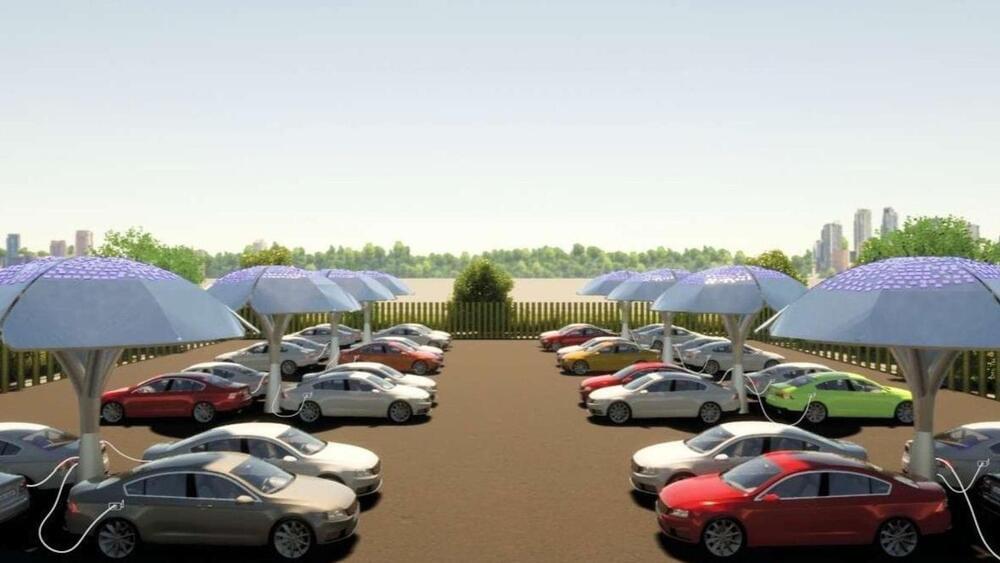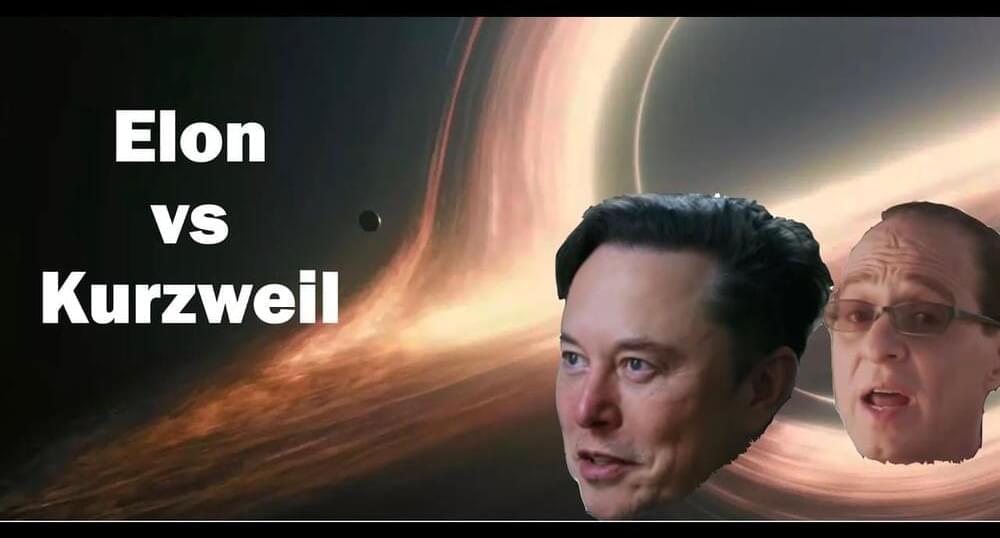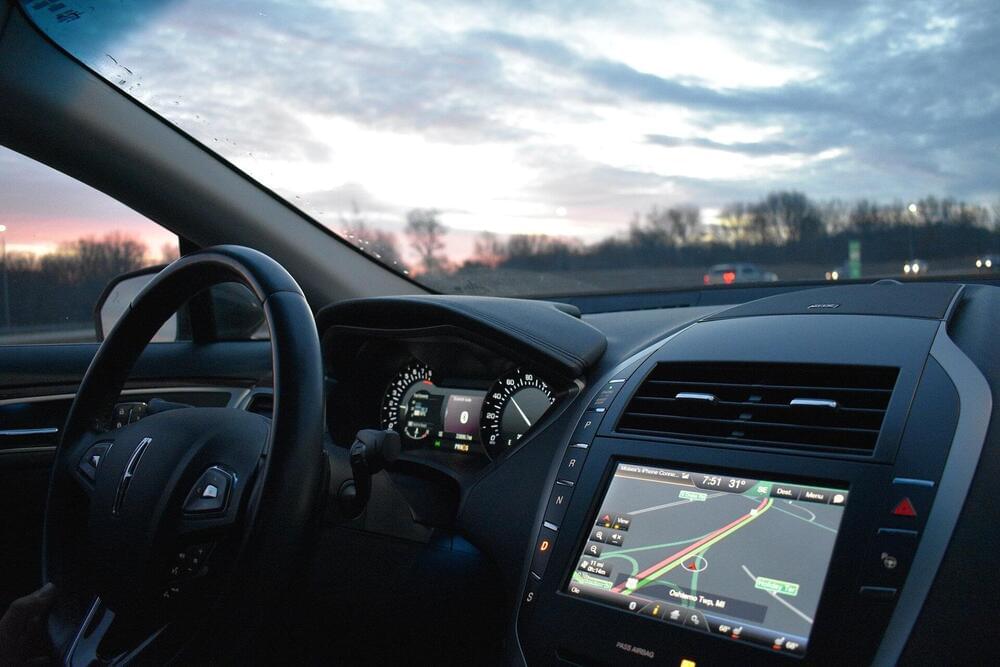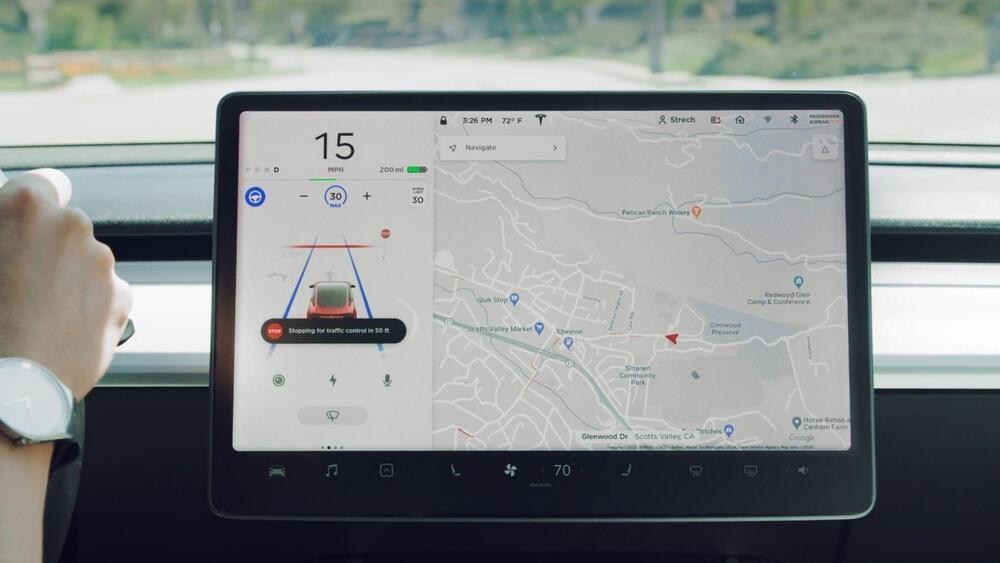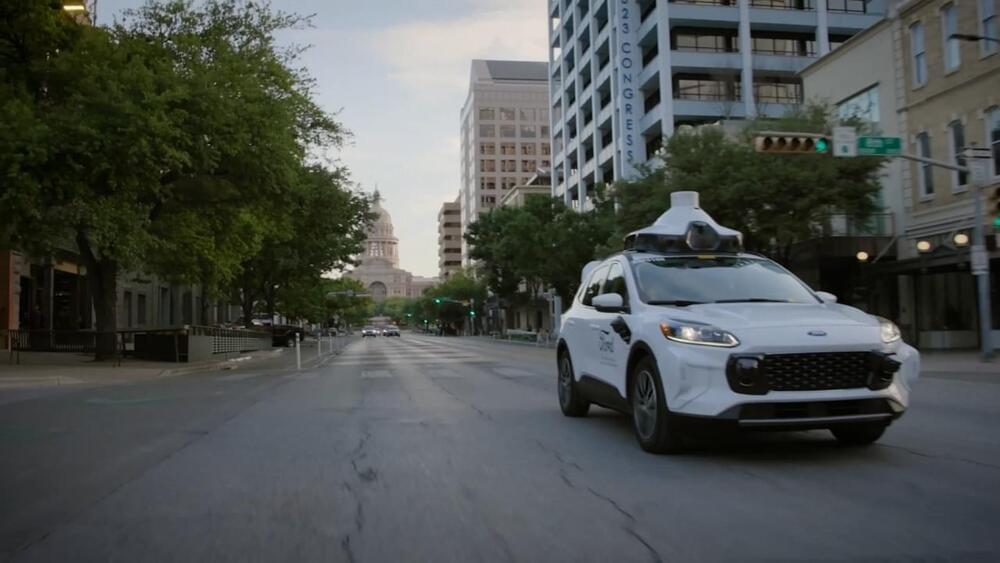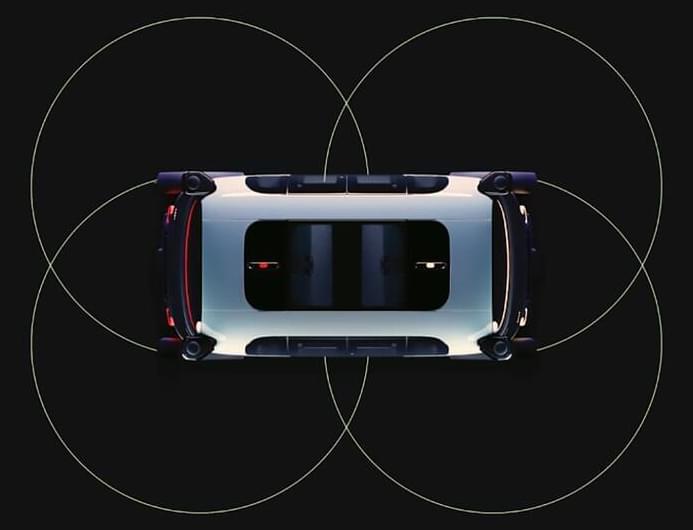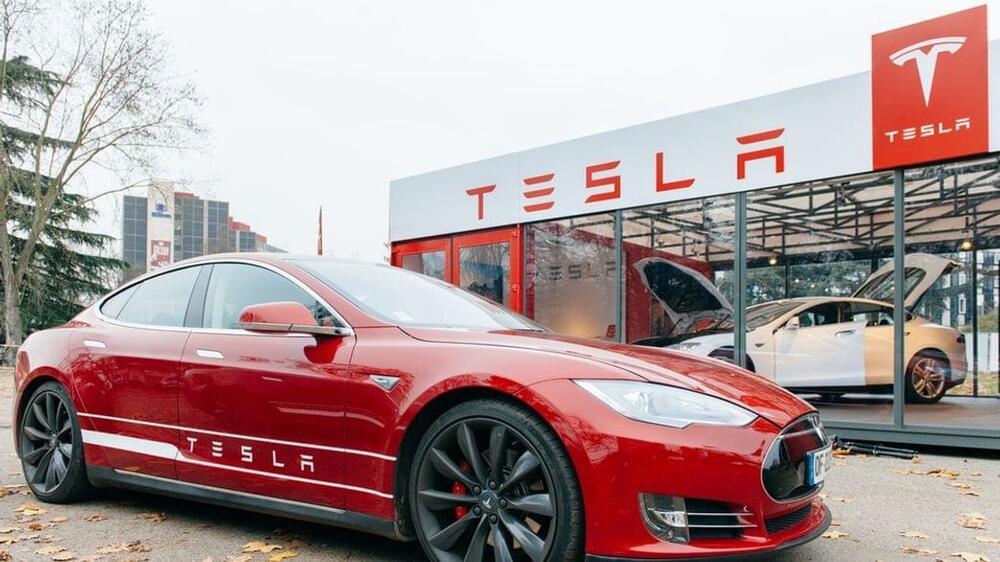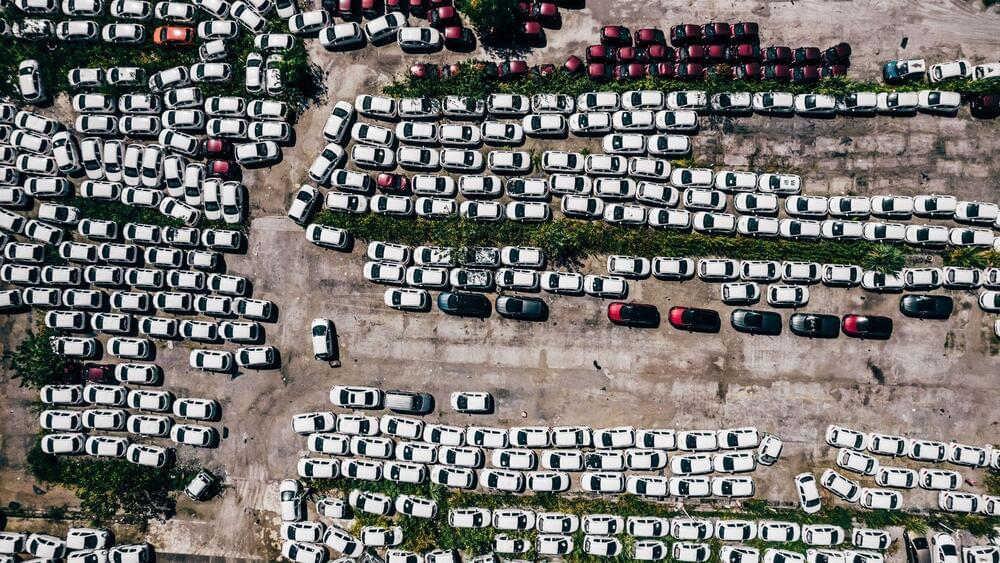Sep 8, 2022
A tree-shaped solar EV charger is coming soon to a car park near you
Posted by Gemechu Taye in categories: energy, sustainability, transportation
It will be commercially available in early 2023.
London-based SolarBotanic Trees (SBT) unveiled its solar and storage system that is shaped liked a tree. The company aims to deploy its technology to charge electric vehicles (EVs) to begin with, Electrek.
With the world moving towards less-carbon emissions, there is a rush toward harnessing renewable sources of energy. Not only do these technologies need improvements in their power generation efficiencies, but they also need to be aesthetically pleasing.
